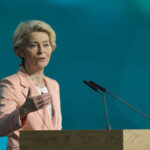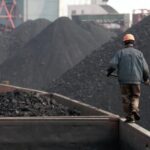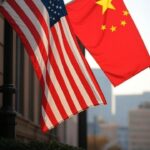Energy News Beat
There is a growing rift among the bloc’s member states on imposing additional restrictions
The EU is set to announce its 12th package of Ukraine-related sanctions on Russia next week, European Commission President Ursula von der Leyen said on Saturday in an address to members of the Ukrainian parliament, the Verkhovna Rada.
According to von der Leyen, the new batch of restrictions will include additional import and export bans and actions to tighten the price cap on Russian oil. The bloc is also planning to introduce new “tough measures” on third-country companies which circumvent existing sanctions, she stated, without providing further details.
Additionally, the package will include personal sanctions against 100 Russian individuals.
“For too long, many in Europe thought that we could trade with Russia and integrate it into Europe’s security order. But it has not worked. And it will not work as long as Russia’s actions are driven by delusional dreams of empire,” von der Leyen stated, vowing that Brussels “will continue to apply maximum pressure against Russia, until the end of the aggression and until Ukraine has re-established a just and lasting peace.”
Earlier media reports also listed measures against the Russian nuclear and diamond industries and its liquefied natural gas (LNG) exports, as well as actions allowing the use of frozen Russian assets to aid Ukraine as potential additions to the new sanctions package. However, von der Leyen did not mention any of these measures in her address.
Moscow has claimed that the sanctions are illegal and warned that they pose a bigger threat to the countries that impose them than Russia.
According to media reports, it is also becoming increasingly difficult for EU member states to agree on new restrictions, as many oppose certain targeted measures against Russia and argue that the current sanctions are not working.
Hungary said last month that it will veto any measures against the Russian nuclear sector.
“The sanctions policy simply does not work. Sanctions may harm Russia… but they definitely cause greater harm to the European economy, to European countries. And if the sanctions cause more harm to those who impose them than to those against whom they are directed, then what’s the point of continuing with them?” Hungarian Foreign Minister Peter Szijjarto said in an interview with RIA Novosti in early October.
For more stories on economy & finance visit RT’s business section
The post EU chief sheds light on new sanctions against Russia appeared first on Energy News Beat.








